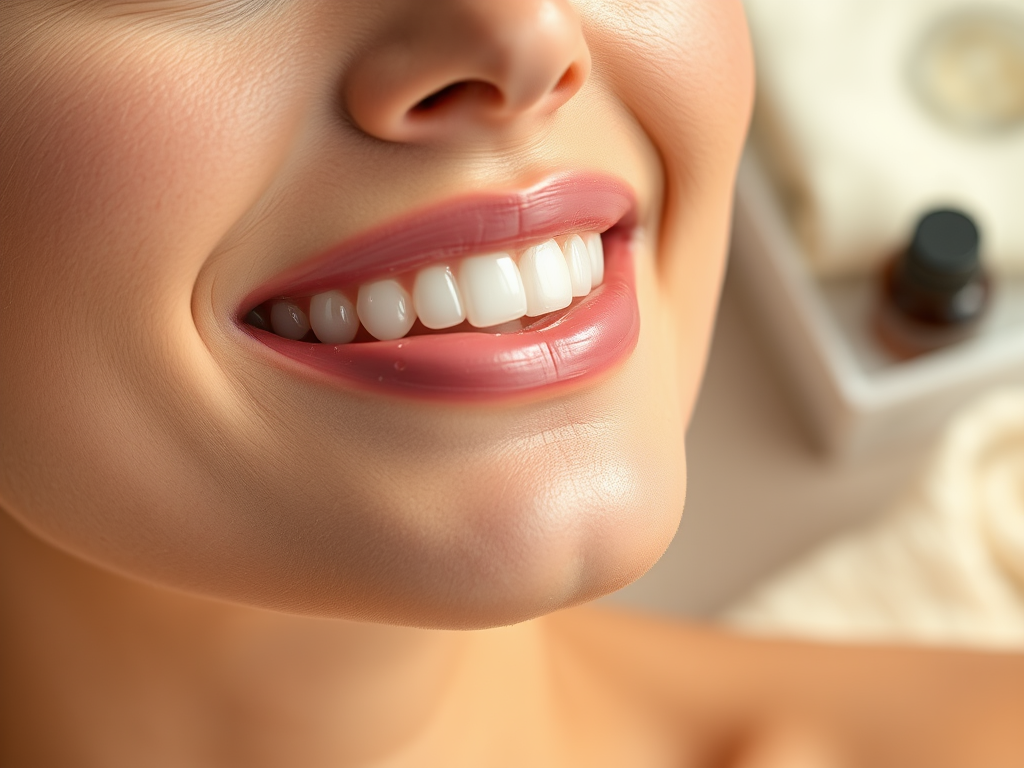In today’s fast-paced world, the pressures of daily life can wreak havoc on our well-being, and our skin often bears the brunt of this stress. What many don’t realize is that the effects of stress manifest not only internally but also externally, reflecting visibly on our skin. This intricate connection between emotional health and skin condition can lead to concerns that many struggle with daily. As the body responds to stress, hormones and physiological changes take center stage, causing various skin issues such as dryness, acne, and premature aging. Understanding how stress affects skin smoothness is essential for finding effective solutions. In this article, we will explore the multifaceted relationship between stress and skin health, while uncovering practical strategies to combat these effects and maintain a radiant complexion.
The Physiological Effects of Stress on the Skin

When faced with stress, our body’s fight-or-flight response gets triggered, leading to a cascade of physiological changes that can adversely affect the skin. One of the primary culprits in this process is cortisol, a hormone released during stressful situations. High levels of cortisol can disrupt the skin’s natural balance, leading to increased oil production and a host of related issues. With this hormonal fluctuation, many individuals find themselves battling problems that can significantly diminish skin smoothness. Moreover, the role of blood circulation during stress cannot be understated, as it influences nutrient delivery to the skin. A lack of sufficient blood flow can leave skin looking dull and lifeless, further complicating the situation.
Cortisol is not the only hormonal factor; other stress hormones, such as adrenaline, come into play, affecting the body in numerous ways. This hormonal imbalance results in changes to our skin that are not only unpleasant but can also be distressing. Learning how these hormones interact with skin health provides valuable insight into managing their effects. Not only does this knowledge empower individuals to take control of their skincare regimen, but it also highlights the importance of stress management for overall skin health. Understanding this connection is crucial for developing effective strategies and targeting treatments for smoother skin.
Common Skin Issues Related to Stress

Stress can present itself in various forms, leading to multiple skin concerns. Recognizing these issues as distinct manifestations of stress is crucial for effective management. Below are some prevalent skin issues that are often tied to stress:
- Acne and Breakouts: Stress can trigger hormonal fluctuations, resulting in increased sebum production which often leads to clogged pores and breakouts.
- Dryness and Flakiness: Chronic stress can compromise the skin barrier, leading to dehydration and visible dryness.
- Premature Aging: Continuous stress contributes to oxidative stress, escalating the appearance of fine lines and wrinkles.
These issues don’t just affect physical appearance; they can significantly impact self-esteem and emotional health. Consequently, many find themselves caught in a vicious cycle of increased stress due to their changing skin conditions. Understanding the relationship between stress and these prevalent skin issues can pave the way for targeted interventions.
| Skin Issue | Cause | Potential Solutions |
|---|---|---|
| Acne | Hormonal fluctuations | Use non-comedogenic products |
| Dryness | Compromised skin barrier | Hydrating serums and moisturizers |
| Premature Aging | Oxidative stress | Antioxidant-rich skincare |
Strategies to Combat Stress-Related Skin Issues
To regain control over your skin’s health and smoothness, implementing effective strategies is vital. Numerous techniques can assist in managing stress levels and enhancing skin vitality. Combining these approaches not only addresses the external symptoms but also fosters overall well-being.
- Mindfulness and Relaxation Techniques: Activities such as yoga, meditation, and deep breathing exercises can significantly reduce stress levels. Allocating time for these practices can lead to noticeable improvements in both mental clarity and skin health.
- Skincare Regimen Adjustments: By incorporating key ingredients such as antioxidants, hyaluronic acid, and soothing botanicals, you can create a barrier against the physical manifestations of stress. Tailoring your skincare routine based on your current stress levels is crucial for optimal results.
- Lifestyle Modifications: Regular exercise, a balanced diet rich in vitamins and minerals, and getting enough restorative sleep greatly contribute to stress reduction. Making small adjustments in these areas can have a significant impact on how your skin appears and feels.
Conclusion
The intricate relationship between stress and skin smoothness highlights the critical need for effective management strategies. By understanding how stress influences our skin, individuals can take proactive steps towards alleviating skin concerns. Implementing relaxation techniques, adjusting your skincare regimen, and making mindful lifestyle choices can create a perfect storm of positivity. Ultimately, tackling the root causes of stress not only benefits the mind but also paves the way for a healthier, more radiant complexion. In a world full of stressors, prioritizing mental and skin health becomes an empowering journey towards self-care.
Frequently Asked Questions
- How does stress affect skin smoothness?
Stress leads to increased cortisol levels, which can impair oil production and hydration, resulting in uneven skin texture and breakouts. - What are the signs of stress impacting skin health?
Common signs include dryness, acne, sensitivity, and fine lines or wrinkles developing prematurely. - Can changing my skincare routine help combat stress effects?
Yes, incorporating products rich in antioxidants and hydration can significantly improve stressed skin. - Are there specific foods that can help improve skin health during stressful times?
Foods high in omega-3 fatty acids, vitamins A, C, and E, and antioxidants can support skin health and facilitate recovery from stress. - Is mindfulness effective for reducing stress-related skin issues?
Absolutely, practices like mindfulness and meditation can lower stress levels and positively affect skin health by promoting overall well-being.



